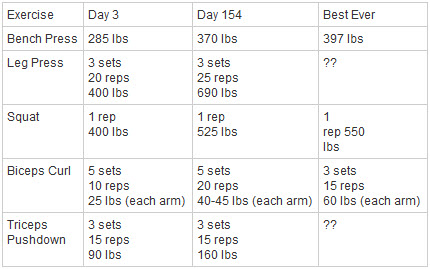
How to Properly Spell Experience: Your Essential Guide to Mastering Vocabulary in 2025
In today's fast-paced world, mastery over language is more critical than ever. Understanding how to spell and utilize words like "experience" is vital as it encompasses various aspects of our professional and personal lives. As we dive into the year 2025, growing your vocabulary can open doors to enhanced communication and greater opportunities. This article will guide you through the essential components of mastering vocabulary and highlight the significance of the term "experience" in relation to expertise, skills, and career advancement.

As we explore the intricacies of vocabulary development, consider how experience shapes our capabilities and qualifications. We will cover the significance of lifelong learning, practical applications, and the importance of various educational avenues such as training programs, workshops, and internships. Our aim is not just to improve your spelling but to cultivate a richer understanding of the words that shape our engagement in both the professional world and everyday communication.
By the end of this essential guide, you will not only learn how to spell "experience" correctly but also appreciate its broader implications in your career and personal growth journey. Let's embark on this mission to enhance our vocabulary and gain insights into the power of words.
Essential Techniques for Vocabulary Development
Building a robust vocabulary is fundamental for effective communication. Developing your language skills can lead to improved academic performance and career advancement. This section explores essential techniques for vocabulary growth, particularly focusing on experience as a cornerstone of knowledge and expertise.
Engaging in Lifelong Learning
Lifelong learning is a commitment to continuously improving your skills and knowledge. Through various modalities—such as online courses, workshops, or formal education—you immerse yourself in new experiences that contribute to your vocabulary enhancement and professional growth.
Consider participating in training programs or workshops that emphasize skill acquisition and experiential learning. Such environments encourage not only the understanding of new vocabulary but also the application of these words in relevant contexts, enhancing both familiarity and competence. Be proactive in seeking opportunities that align with your career goals.
Utilizing Practical Knowledge
Hands-on training significantly boosts your vocabulary by offering real-world applications of the words you learn. Internships, job shadowing, and fieldwork provide critical exposure to industry-specific terminology and jargon. Engaging in problem-solving activities allows you to apply new words effectively, reinforcing your understanding of their contextual meanings.
Always remain curious about your field of interest and seek out experiences that align with your passion. This commitment to practical knowledge not only helps expand your vocabulary but enriches your overall understanding of your professional environment.
Networking and Professional Development
Networking is an invaluable aspect of professional growth and vocabulary enhancement. Engaging with experienced professionals can introduce you to specialized language pertinent to your industry. Attending seminars and workshops provides opportunities for meaningful conversations that can lead to deeper insights into your field and strengthen your language proficiency.
Additionally, participating in community workshops or mentorship programs can further solidify your understanding of key terms and their applications in practice. As you build connections, you broaden your learning landscape, allowing for diverse insights and impactful conversations that improve your vocabulary.
Importance of Mastery in a Professional Context
Mastery over vocabulary is crucial for effective communication in the workplace. Understanding and articulating words like "experience," "expertise," and "proficiency" directly impact your professional identity. In this section, we will explore how mastering vocabulary enhances job performance and contributes to career advancement.
Maximizing Career Opportunities
Strong vocabulary skills are essential for maximizing career opportunities. Employers often assess communication skills during interviews and evaluations. The ability to clearly articulate your experiences, competencies, and ideas increases your marketability and demonstrates your proficiency in a given field.
By effectively communicating your experiences—be it through interviews, resumes, or networking—you display your capability to contribute meaningfully in professional settings. This not only enhances your credibility but also opens the door to new and exciting career developments.
Understanding Industry-Specific Lingo
Every field has its respective jargon, and familiarity with industry-specific terms boosts your competency and understanding of the subject. Immersing yourself in the language of your profession allows you to engage intelligently with colleagues and clients alike.
Being fluent in your industry’s vocabulary enables you to navigate workplace dynamics more efficiently. It promotes better collaboration and makes it easier to engage in strategic discussions, thereby improving your professional relationships and performance.
Enhancing Problem-Solving Skills
A strong vocabulary enhances your problem-solving skills by equipping you with the language needed to articulate issues and brainstorm solutions clearly. The ability to express challenges and potential solutions effectively can lead to more productive discussions and innovative ideas.
The practice of articulating your thoughts encourages critical thinking and analytical skills, fostering a culture of collaboration and continuous improvement within your team. Make it a point to communicate your insights effectively, as these contributions can significantly impact project management and overall success.
Effective Learning Strategies for Vocabulary Improvement
As we continue to strengthen our vocabulary, it is essential to examine effective learning strategies that promote long-lasting improvements. This section offers practical methods for building your lexicon through sustained practice and exploration.
Incorporating New Words into Daily Usage
One of the most effective ways to learn and retain new vocabulary is through active use. Try to incorporate newly learned words into your daily conversations, writing, and professional communications. This reinforces your understanding of context and application.
Moreover, record new vocabulary in a journal or digital tool, noting their meanings and contexts. Regular reviews of this content will enhance retention and deepen your comprehension.
Practicing with Interactive Tools
Take advantage of digital learning platforms that offer interactive vocabulary exercises, quizzes, and games. These tools often provide engaging experiences that promote active learning and make the acquisition of new words enjoyable.
Many online resources categorized under skill acquisition can help you improve your language proficiency through narrative storytelling and contextual learning. By embracing interactive experiences, you can solidify your understanding of vocabulary in relation to your field.
Creating a Study Group
Forming or joining a study group can also be beneficial for vocabulary development. Collaborating with peers who share similar goals allows for discussion and application of new terms in a supportive environment.
Through cooperative learning, you can gain insights from others while providing your perspectives. This social interaction will help to reinforce your vocabulary while promoting a love for shared learning.
Q&A: Common Questions on Vocabulary Mastery
Why is vocabulary mastery important in today's job market?
In a competitive job market, effective communication skills are vital. A strong vocabulary enables professionals to articulate their thoughts clearly, enhancing their chances of career advancement and networking opportunities.
How can I consistently improve my vocabulary?
Regularly read books and articles related to your field, actively participate in discussions, and use digital tools to enhance your vocabulary. Engaging in lifelong learning practices such as workshops and training programs also provides significant opportunities for improvement.
What role does experience play in vocabulary development?
Experience is a critical factor in the context of vocabulary development, as practical involvement in your field allows you to integrate specialized terms into your understanding and communication. Real-world applications ensure that vocabulary is not just theoretical but reinforced through active engagement.
Explore further insights on effective vocabulary mastery and its practical applications.
Conclusion
Mastering vocabulary, especially terms like "experience," is essential for effective communication and professional development. By engaging in lifelong learning, practical experiences, and networking, you can continuously enhance your language skills. Remember that vocabulary is not just about spelling correctly; it's about understanding and skillfully applying words to express your knowledge, insight, and competence in any field.
Embrace the journey of vocabulary development and see how it transforms your communication, career, and contributions to your industry.
